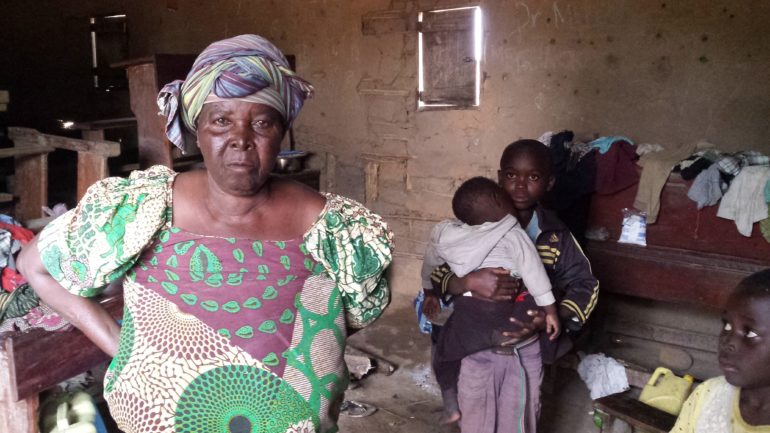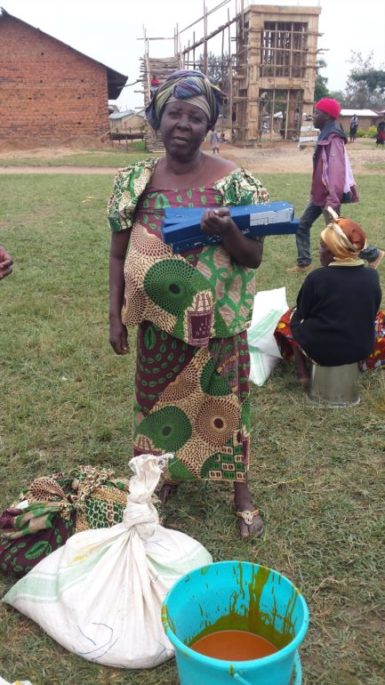
Marie, a 73-year-old Congolese woman, had lived in a war zone for two decades when rebels attacked her village in North Kivu province again, killing her husband and causing her to flee with her family to find shelter in a school.
She thinks it was probably a year ago when rebels, suspected to be affiliated with the Allied Democratic Forces (ADF), attacked her home town, Kamango, near the Ugandan border. “We were in the house when we heard noises outside,” she says. “My husband asked me to go and find out what was happening. I left through the back door and they got in through the front. They killed him and the three others who were inside the house with us.”
The chaos and insecurity forced Marie and her family to make the long journey, on foot, to Eringeti, about 100km to the northwest. But in Eringeti there was still no peace. Another attack by ADF-affiliated rebels left her running for shelter to Oicha, 25km to the south.
There, the recently widowed grandmother found a small mud classroom in a local school, where she and some of her relatives could stay.
In the absence of a formal camp for internally displaced people (IDPs), three schools in the town host almost a thousand displaced families like hers.
The impact of the violence has been immense in a province that is almost 96 per cent Christian.
The international charity Open Doors went in to bring relief aid to Marie and the other displaced Christian families. At the distribution area the families arrived with pans, buckets and bags – anything that could contain the 12.5kg of rice, 15kg of beans, 10 sachets of salt, 5.5 litres of palm oil and five bars of soap that each of them received.
Finding odd jobs

Marie says the aid will help her and her family very much. “I thank God for this gift,” she says as she carries the food back to the classroom where they are staying.
There the desks have been moved to one side. Over them are draped an assortment of clothes at various stages of drying. Gallon containers, a pot and some plates adorn other surfaces in the poorly lit room. On the floor is a thin foam rubber sheet, on which one of Marie’s grandchildren sleeps, and one pillow – for Marie.
Together they try their best to make ends meet by doing menial labour. In the morning, each of Marie’s children goes to the city, loitering in the hope of finding odd jobs. Marie herself cannot do much physical work due to her age, but she does what she can. “I usually accompany some farm owners, sometimes carrying water for them and doing other odd jobs. At the end of the day they give me some oil,” she says. What she receives, sometimes half a litre, she sells to buy food for her family.
In July the school is closed because of the holidays and this makes life a bit more bearable for Marie and the other IDPs. During term-time they have to get up in the morning to sweep the classroom and put all their belongings outside. “We wait outside until school closes for the day,” she says. “Then we can put our belongings back inside, and start cooking whatever food we have for the day… We can’t afford to have smoke blind the students’ eyes now, can we?”
Lawlessness and violence
Since the 1990s, North Kivu has been plagued by instability and violence. The vast eastern region of North Kivu, which borders Rwanda and Uganda, has long suffered from lawlessness, and civilians have found themselves at the mercy of militias, rebels and military units. Violence there is exacerbated by competition for the region’s vast mineral wealth.
Between October 2014 and May 2016, violence left 1,116 dead, according to local NGOs. Another 1,470 people were abducted, they said, while more than 34,000 families were forcibly displaced. There were also numerous cases of sexual violence against women and children.
